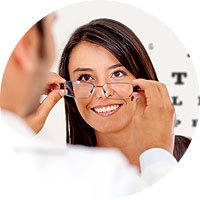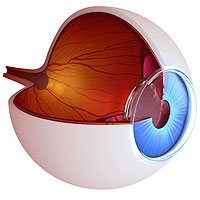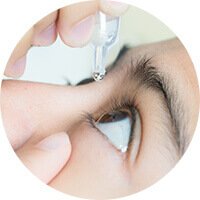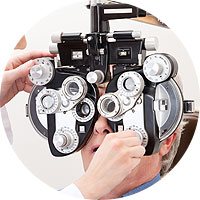Eye nutrition is becoming a growing concern for many people, particularly those who share concerns of developing cataracts and age-related macular degeneration (AMD). It has been suggested by many studies that eating certain foods can help to reduce strain on your eyes and potentially even reduce your risks of developing age-related eye diseases. There are two carotenoids in particular that are said to provide a multiple health benefits to your eyes.
Lutein and Zeaxanthin
Lutein and zeaxanthin can be found in high concentrations in most green and other vibrantly colored vegetables, but high levels of both are found in the macula of the eye. It is suggested that lutein and zeaxanthin help to block damaging rays of blue light from reaching the retina. This helps to reduce our risks of developing age-related macular degeneration.
Multiple studies support the theory that eating a diet that includes lutein and zeaxanthin can help to prevent you from developing age-related macular degeneration or at the very least slow its progression. In 2001, a study published by AREDS2 found that daily antioxidant supplements containing lutein and zeaxanthin reduced risks of developing progressive age-related macular degeneration by 25%. The participants in the study were those who were at the early and intermediate stages of macular degeneration.
While the AREDS2 study did shed some light on the effects lutein and zeaxanthin have on those who suffer from AMD, it was a bit less clear on whether it helped to prevent developing cataracts.
Some great vegetable sources of lutein and zeaxanthin include: Kale (cooked), spinach (cooked and raw), collards (cooked), turnip greens (cooked), green peas (cooked), corn (cooked), broccoli (cooked), romaine lettuce (raw), carrots (cooked and raw), green beans (cooked).

















